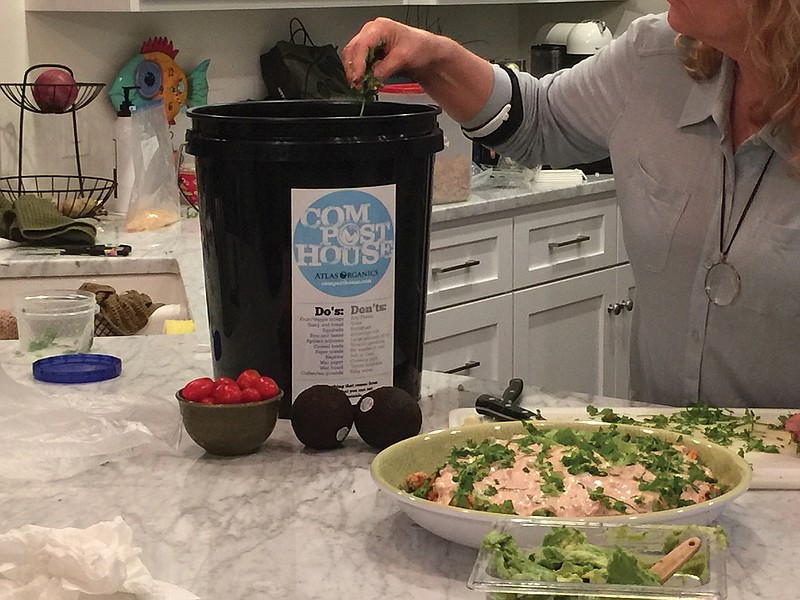The pandemic has changed many things about the way we live, play and work. Perhaps the most unexpected has been our shifting perspective on food: how to get it, how to prepare it and, for many, how best to dispose of what's left behind.
According to the FDA, food waste is the single largest category of material entering landfills.
The best way to avoid food waste is planning meals to reduce spoilage and unwanted leftovers. But even the most conscientious of kitchens will have inedible waste.
What to do with all those eggshells, banana peels and apple cores? Many know that composting them is better than putting them in the trash, but most do not have the time, space or desire to tend a pile of decaying food.
Several years ago, a team of sustainability advocates attempted to create a local composting option. When scaling up proved impossible, they turned to Atlas Organics, the South Carolina company responsible for Compost House.
Compost House turns food waste into rich compost. Members pay a monthly processing fee and receive finished compost in return. The nutrient-rich organic matter is diverted from the landfills, and members can enhance their yard or garden. It is an ultimate win-win.
With its focus on sustainability and the outdoors, Chattanooga was the perfect site for Compost House to launch a satellite version of its successful flagship venture. The Chattanooga site launched in August 2017 with a focus on residential service and a plan to expand to commercial and municipal options.
SURPRISING SHIFT
Restaurant closings have demanded everyone cook more at home - which has meant more interest in residential composting. Since March, Compost House Chattanooga has added 48 new customers and returned 4,370 gallons of finished compost to members. This increase in requested compost is likely the result of another pandemic-related shift: more home gardens.
"This year has been full of surprises, yet interestingly enough, the pandemic has been a way to move our mission forward," says Melonie Lusk, executive director of Crabtree Farms, Compost House's local partner. "People are as interested as ever, or perhaps more so, in trying their hand at growing some of their own food. The pandemic has increased their interest in knowing where their food comes from."
Mary Grace Rogers is one of those new members, joining in April after years of maintaining a passive compost pile, which could not support items such as cooked meats, bones or citrus peels. Knowing that her family needed a more sophisticated system to break down those items, they turned to Compost House. She acknowledges that it requires a few extra steps, but insists, "We're creating the possibility of something more convenient, more integrated into our kitchens, into our homes. By saying yes to this now, it can contribute to a groundswell of change that might one day make it as easy and obvious as the trash can has been for all these years."
HOW IT WORKS
Compost House Chattanooga is made possible through its partnership with Crabtree Farms. Crabtree provides the land and equipment to process compost locally; in exchange, they receive all the compost needed for their extensive farm operations.
"As education around local food sourcing, sustainability and overall kindness to our environment are key foundational pieces of what Crabtree Farms stands for, it makes perfect sense for Compost House to lease a piece of our acreage to create usable compost," Lusk says.
Compost House offers two residential service options: doorstep and drop-off.
Doorstep customers receive two 5-gallon buckets to fill with household compostables and can choose between weekly ($30/month) or biweekly ($20/month) service. On pickup day, customers leave their filled buckets on a porch or driveway, and Compost House replaces them with empty, sanitized buckets.
Those choosing drop-off service receive one 5-gallon bucket which they can fill and return on their own schedule. Drop-off members have to empty their own bucket, but they enjoy the benefit of a more flexible schedule and lower costs ($15/month).
All members are eligible to receive 10 gallons of commercial-grade compost each month.
